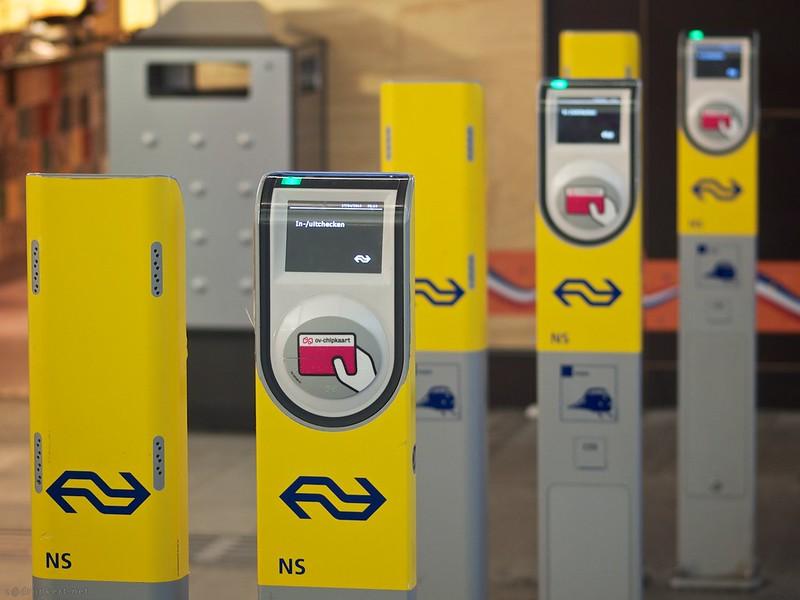OV Chipkaart
Some students run more risk of getting a public transport fine than others

Travellers will soon be able to check in on trains, buses and trams using their debit cards or mobile phones, which means that students will no longer have to activate or deactivate their reductions at a ticket machine.
For years, students and recent graduates have been paying millions of euros in fines because they forget to cancel their student discounts. These fines must be paid even if the travel card hasn't been used at all. The companies operating the public transport system in the Netherlands lobbied to maintain this system and raise the fines.
52.6 million euros
In 2014, students paid a record amount of 52.6 million euros in fines, which sparked the opposition of certain political parties. Since then, the provision of information has been improved, the legislation has become milder and a technical patch (blacklisting) has been introduced. As a result, the amount shrank to 5 million euros in 2021.
However, students are still expected to remove the "travel entitlement" from their travel card at a ticket machine. The discounts are not automatically cancelled once the person is no longer entitled to them.
The system should be improved next year. The Minister of Education, Robbert Dijkgraaf, is going to amend the law to allow students to benefit from the upcoming changes.
Transition
There will be a transitional period during which some students will travel using the old system and others will use the new system. So, some will have to remove the travel entitlement from their chip card when it expires, while for others that will happen automatically.
The Green Left party (GroenLinks) inquired the minister whether it is possible to have a transition period when one would "be more lenient towards students who are using an old public transport card and who forget to cancel it, thereby incurring a fine.”
The minister sees no reason for leniency. The situation will not have changed for students using the old system, he argues, and leniency could result in students deliberately continuing to use their cards when they are no longer entitled to do so. “I don’t consider that desirable”, said Dijkgraaf.
Under the old system, students can easily incur a fine, but that doesn't happen under the new system. Given the technical problems, the transitional period might last longer than January 1, 2024, the target date for transport companies.
Retroactive
In fact, fines will not be completely eliminated, even under the new system. It is still possible for someone to make use of the student travel entitlement who is not actually entitled to do so. For instance, someone who has applied for student financing (and therefore a travel entitlement) but who has never started a study programme. That would come to light only if a check is made.
Additionally, students at certain institutions graduate retroactively. The benefit of that is that they can get their tuition fees back for the months after they stopped studying. The disadvantage, on the other hand, is that they no longer have a travel entitlement – also retroactively.
If it can be demonstrated that a public transport fine is the result of slow administration at the educational institution, the Education Executive Agency can get the fine remitted, says Dijkgraaf. He is not willing to tinker with the rules for de-registration, so that students do not have to pay too much in tuition fees. After all, that too saves them a couple of million euros.